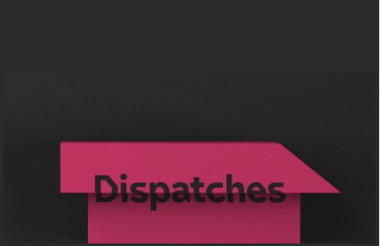We’ve made it to March without a major charity scandal, so when I found out Channel 4’s Dispatches planned an episode looking at how “the most famous people in Britain are profiting from the work they do for charity”, it grabbed my attention.
But last night’s investigation was disappointing. Its argument seemed confused and parts of it were flawed.
It didn’t actually tell us very much about charities or Britain, given that one of the celebs caught up in the sting is based in the United States.
By comparison to previous charity scandals, it was really quite tame.
What did Dispatches do?
Dispatches set up a fake charity, Cleaning Up Plastic Pollution in Africa, or Cuppa. Cute. It then set about contacting celebrity talent agencies to try and secure support.
The programme-makers had been tipped off that if they did this, talent agencies would try and charge the charity money for their client’s public appearances.
Two celebrities, Harry Redknapp and Caitlin Jenner, agreed to post supportive messages about the new charity in return for more money than most people earn in a week. One, Stanley Johnson, declined to take discussion further after his team realised Cuppa was not a registered charity.
Firstly, I can't think of many brand new charities that would set themselves up with this strategy of focusing on gaining celebrity endorsements.
In any case, not many charities start with enough money to pay the kinds of fees these agencies were quoting, so even if they do they quickly move on to other tactics.
Growing your charity’s network, both digitally and in real life, is an important way to raise awareness of the cause, and celebrity support can be a way to amplify this. But it takes time and effort to build those foundations.
Is it ok to pay celebrities?
Dispatches relied on a poll of 2,000 people. Almost 90 per cent said they thought celebrities should never be paid by a charity for social media posts, 82 per cent thought celebrities should never be paid for charity work, and 71 per cent said they’d be less likely to donate to a charity that pays celebrities.
I wonder if this partly speaks more to the idea that people generally don’t think charities should have to pay for anything because they do good work. Would a poll also find that people don’t think charities should pay for toilet paper for the office, when it could be donated by Andrex (or any other brand)?
It certainly reflects the attitude we hear time and again from the public: that they want reassurance that charities are spending donations sensibly.
So is there a balance to be found here? A blanket ban on ever paying celebrities doesn’t seem to be the correct approach. On the other hand, these public appearance fees by celebrities are high and obviously it would be better if they would just work for free.
It’s easier to make the case for paying someone to host a fundraising event. Charities are paying for professional public speakers to help to engage a crowd and ultimately raise significantly more than they have paid out.
However, the social media endorsement question is trickier, and not a distinction that Dispatches made very clear. How easy would it be to truly measure the fundraising impact of an Instagram post?
Social media seems like an easier job than speaking to a room full of people. Anyone can take a photo of themselves drinking tea and write “hey support this charity, I do”. But the truth is that these “influencers” have a large and engaged following.
There could be instances, especially for charities that want to reach certain demographics with a particular message, where paying would be a sensible thing to do. But the post would need to be marked as such to comply with the Advertising Standards Authority.
The watchdog has recently toughened up on this behaviour and has been fining celebrities who do not clearly indicate if they have been paid to make social media posts on behalf of commercial companies. So it’s worth bearing in mind.
Do charities have anything to worry about?
In short, not really?
The safeguarding scandal that began in 2018 led to funding being withheld until aid charities sorted things out. Poor fundraising practices by agencies and a lack of oversight by charities led to the creation of a new regulator. Other scandals have led to new bits of best-practice guidance.
By comparison this scandal barely registers. I doubt celebrities looking to make easy money will change their behaviour (well they might be more inclined to check if a charity is registered in future), while no real charities have been found wanting so there isn’t much for regulators or sector bodies to do.
Interestingly the headline on the Metro this morning read: “Channel 4 Dispatches slammed by viewers for ‘manipulative’ doc of celebs charging £20k for charity endorsements.”
So there isn’t even much need to issue statements explaining that this isn’t how most charities operate.
If this is this most scandalous charity story on TV this year then we’re in for a calm year.
Related articles











